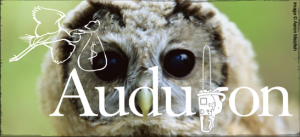I want to start this post with a plug for a good friend and fellow CoC blogger, Erin Light, Senior Manager for Sustainability at Unisource Worldwide. Unisource is at one of the world’s leading paper distribution companies and Erin is their in-house expert in green certification.
In a recent post to the UnisourceUnplugged blog, Erin calls attention to one of the least-appreciated strengths of the Sustainable Forest Initiative (SFI) program. Unlike either its chief competitor, FSC, or its international partner, PEFC: the SFI program’s forest management and certified sourcing standards have always included requirements for active community engagement and direct support for research. This feature of the program is certainly one of its real strengths. Sadly, though, it has also, recently been the subject of some rather narrow-minded criticism from the NGO community.
For most of us who work actively in the wood-products business, the competition between the prominent green certification standards is just an annoying distraction. The never-ending question of “who is best” will never really have an answer. For a few of the more determined NGO campaigners, however, this question remains of first importance. I was frustrated, just this week, to see a series of tweets from ForestEthics, making reference to this piece in the Huffington Post, which takes exception to the awarding of a research grant, funded by SFI, to the National Audubon Society. They even went so far as to design a cheesy graphic, overlaying the Audubon name with a chainsaw (the universal symbol for evil, I guess) and a stork carrying (apparently) a bag of money.
What’s going on?
ForestEthic’s position – as well as I can make it out – seems to be that SFI is such an evil organization, that they must be prevented from doing anything; even if what they are doing is good. That apparently includes helping to fund the research efforts of a gold-plated conservation group like Audubon into the protection of endangered bird species. This is just baffling.
I have been in this business long enough to appreciate the value of diverse opinions and perspectives. The community of NGO campaigners – including my colleagues at ForestEthics – deserve a lot of credit for the great progress we’ve made, over the last 20 years, in improving the standards of environmental ethics and overall sustainability of the global wood products business. But diversity is a two-way street. I think it is time for some of us to show some maturity and tolerance, and appreciate that the complex challenges we face will only be solved through respect and compromise. Is that too much to ask?
